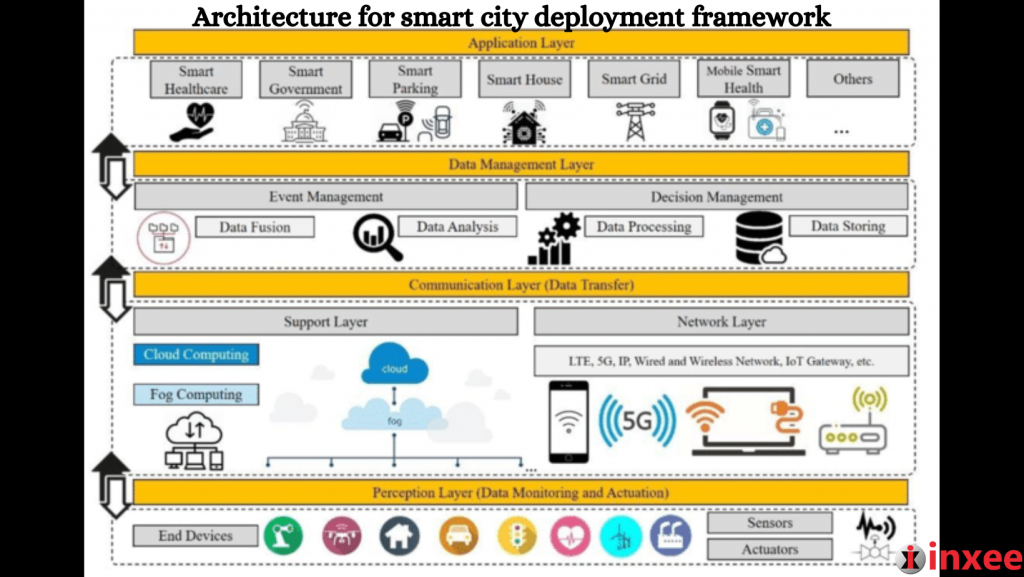Architecture for smart city deployment framework
A robust architecture is critical for the successful deployment of a smart city framework. The architecture should provide a scalable, flexible, and secure foundation to support the diverse range of technologies and services in a smart city ecosystem.
At its core, the architecture should incorporate a network infrastructure that enables seamless connectivity and data exchange among various components and devices. This infrastructure may include wireless networks, fiber-optic connections, and Internet of Things (IoT) platforms to facilitate communication and data transmission.
The architecture should also incorporate a data management layer that handles the collection, storage, processing, and analysis of vast amounts of data generated by sensors, devices, and applications in the smart city. This layer should include robust data storage and processing capabilities, as well as advanced analytics tools to derive meaningful insights and support data-driven decision-making.
Furthermore, the architecture should integrate various applications and services that address specific smart city domains such as transportation, energy management, waste management, public safety, and governance. These applications should be designed to interact and share data, enabling cross-domain collaboration and holistic management of city operations.
To ensure security and privacy, the architecture should incorporate robust security mechanisms such as encryption, access control, and authentication protocols. It should also adhere to privacy regulations and standards to protect the personal data collected within the smart city environment.
Lastly, the architecture should allow for future scalability and adaptability, considering the evolving nature of technologies and the potential growth of the smart city ecosystem. It should support interoperability and standardization to enable integration with new technologies and services as they emerge.
In summary, a smart city deployment framework requires an architecture that provides a robust network infrastructure, efficient data management, domain-specific applications, security measures, and future scalability. This architecture forms the foundation for building a connected and sustainable city that leverages technology to improve the quality of life for its residents.










Leave a Reply